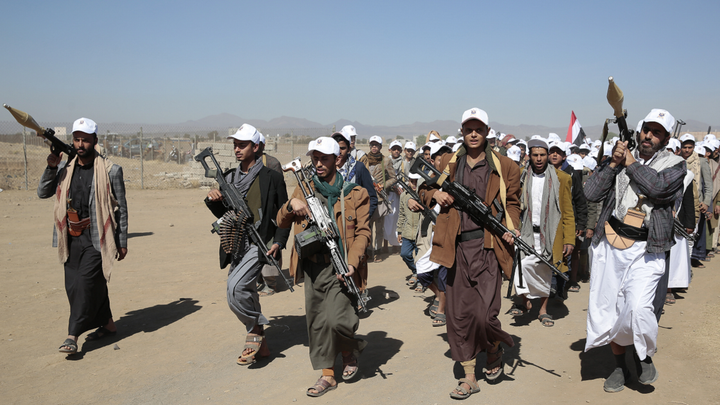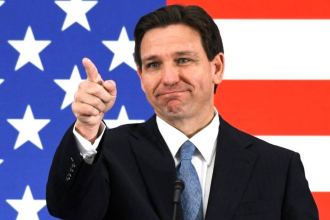Al Thani: ‘Military action will not achieve us the result we want’
Bret Baier, a Fox News anchor, interviewed Qatari Minister of Foreign Affairs Mohammed bin Abdulrahman bin Jassim Al Thani on Tuesday night about growing tensions in the Middle East and Qatar’s role in de-escalation efforts.
Throughout the interview, Al Thani refused to blame Iran for funding foreign terrorist groups such as Hamas and the Houthis, insisting that Qatar was not in a position to play the blame game and was instead focused on finding a solution to end the conflict in Gaza between Israel and Hamas before it spreads throughout the region.
Al Thani informed Baier that his nation has long participated in peace negotiations, including those involving the Taliban and the United States, Ukraine and Russia, and Hamas and Israel, among others. “One of our core principles in foreign policy is to find a way to mediate conflicts and to contain them so as not to escalate further,” he said. “Part of our foreign policy doctrine is to be able to talk to everyone in order to bridge the gaps.”
Baier questioned Al Thani about rumors of a framework for a plan for a truce in Gaza and the release of hostages during the interview.
Al Thani informed Baier that his nation has long participated in peace negotiations, including those involving the Taliban and the United States, Ukraine and Russia, and Hamas and Israel, among others. “One of our core principles in foreign policy is to find a way to mediate conflicts and to contain them so as not to escalate further,” he said. “Part of our foreign policy doctrine is to be able to talk to everyone in order to bridge the gaps.”
Baier questioned Al Thani about rumors of a framework for a plan for a truce in Gaza and the release of hostages during the interview.
“The U.S. and Qatar relationship has been very strong, and we have this mutual trust between these two countries, this great alliance between the two countries, and we believe that this is helping in restoring regional stability,” he stated. “So, we believe any country in our region that is able to bring some stability and peace has a role to play, and they should step up to that role.”
“Military action will not get us the result we want,” he stated.
In northeast Jordan, close to the borders with Syria and Iraq, a drone strike claimed the lives of three American military members over the weekend. Since October 17, there have been over 165 strikes on American forces in the area.
When Al Thani earlier expressed his opinion that the Middle East is “dancing on the edge and ready to boil over,” Baier questioned him about his meaning.
“We understand the magnitude of the Palestinian issue over there, which is why we’ve been very worried about the situation in the region since the war started in Gaza,” he said, adding that he and other leaders in his nation were concerned that the conflict would spread throughout the region, where there are several other forces that could try to exploit and escalate the situation.
Al Thani said Qatar extended its condolences to the families who lost loved ones and the U.S. government, adding it was unacceptable.
“But this is the result of dancing on the edge,” he stated. “It was just enough throughout the last 100 and something days, trying to provoke here and there.”
Al Thani declined to assign any culpability at all to Tehran when asked how much of the fault he personally places there.
“We are not here in a position to do the blame game,” he stated. “Our neighbor is Iran. We keep lines of communication open with them.”
According to the foreign minister, the two nations would keep discussing how to encourage all parties in the region to reduce and defuse tensions rather than escalate them.
Al Thani was given a video clip featuring former National Security Advisor Robert Bryant saying that organizations like the Houthis, Syria, Hezbollah, and Hamas “wouldn’t shoot a BB gun without Iran’s approval.”
Baier questioned if he thought that was accurate.
“I believe that’s his viewpoint. I adore Robert as a buddy. I value his viewpoint,” Al Thani remarked. However, this is something else; I have no right to judge. I believe that the behaviors are what we need to judge, and we need to put an end to them.”
Baier also cited a Jerusalem Post piece in which the magazine stated that it was unclear if Iran’s supporters, Turkey and Qatar, or its allies, China and Russia, were in charge in Tehran or had any influence.
Iran indicated in the report that it does not control the group despite the fact that it can support and encourage activities similar to the Houthi movement in Yemen.
Baier inquired as to whether Al Thani objected to being called an “enabler.”
Qatar is a next-door neighbor to Iran,” he stated. “We share borders with them; we share a gas field with them—in fact, the largest gas field in the world—and our relationship is based on common interests and a good neighborhood.”
He was also questioned on whether it would be appropriate for the United States to strike back inside Iran and whether it should resist and react against these attacks on American forces.
According to Al Thani, Qatar fully respects the United States’ decision-making and crisis management approach, but at this point, “cooler hands are needed.”
The foreign minister declared, “We need to resort to diplomacy in order to try to contain the situation and focus on resolving the issue.”
He was questioned once more on the rapidly escalating scenario and whether he was concerned that the area was a tinderbox.
“The situation is very concerning, and every day it’s getting more concerning,” added Al Thani. We aim to prevent provocation since it can occasionally turn into a serious mishap that starts a larger dispute. For this reason, we must concentrate on how to resolve the situation in Gaza and find a solution.”













